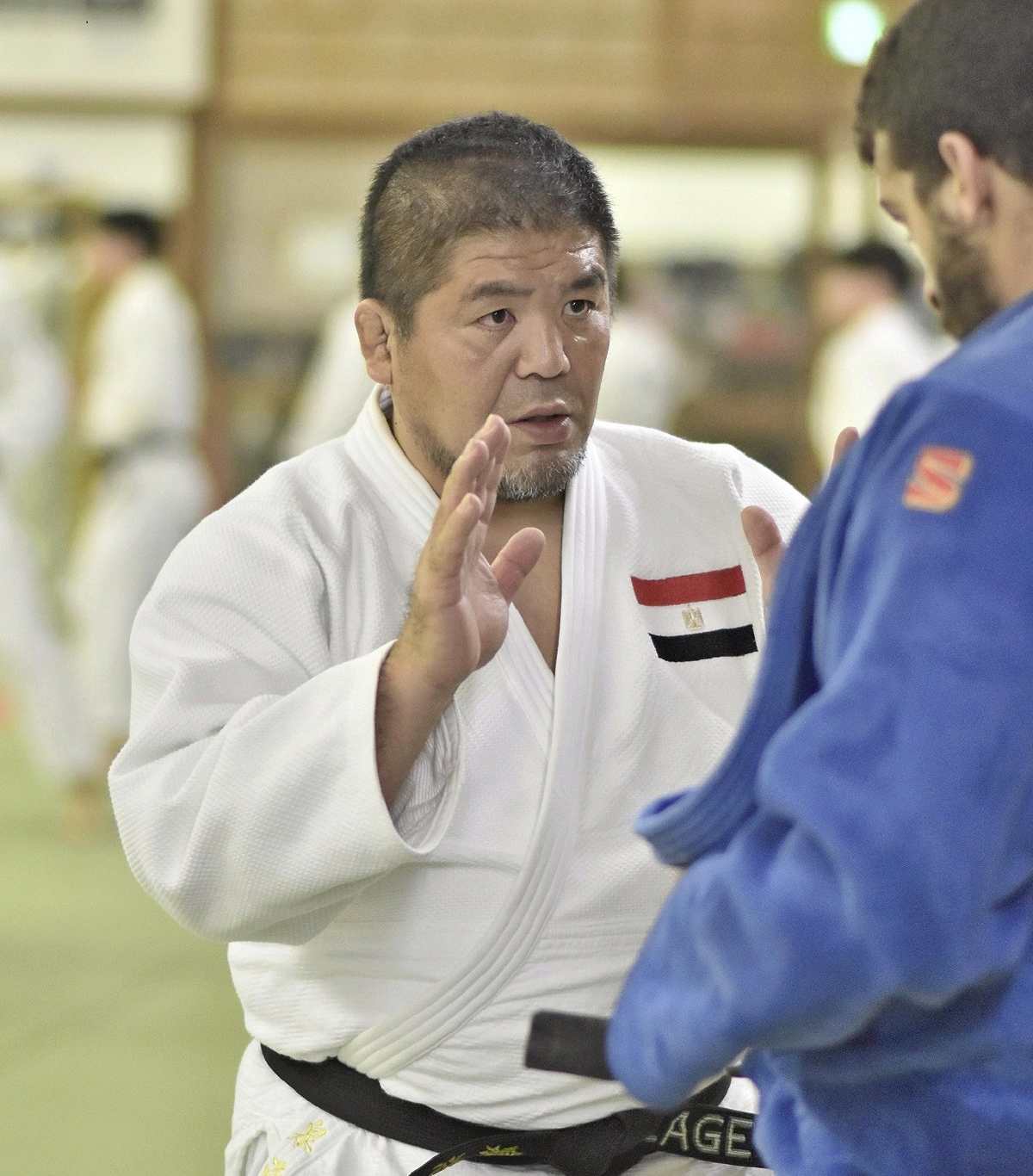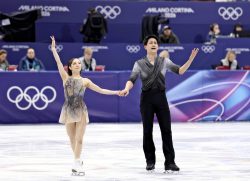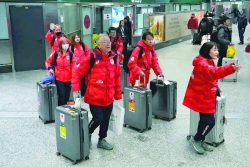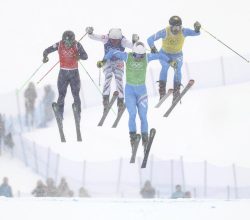Ex-Olympic Judo Medalist Izumi Coaches Egyptian Team in Paris; Aims to Produce Future Medalists

Hiroshi Izumi, left, trains with an Egyptian team member at Tokai University in Hiratsuka, Kanagawa Prefecture, on July 11.
12:23 JST, July 21, 2024
At a recent judo practice session in Japan, Hiroshi Izumi gives instructions to one of his team members, looking him straight in the eye as he gains a grip on the collar of the judo uniform. But he speaks in English, mixing in some basic Arabic that he knows.
Izumi, a former Olympic medalist for Japan, is the national team coach of Egypt, which has two athletes qualified in judo for the upcoming Paris Olympics. While overcoming language and cultural differences, he has a definite goal: “To produce Olympic medalists.”
The 42-year-old Izumi, who won a silver medal at 90 kilograms at the 2004 Athens Olympics, moved to Egypt in January this year to start on his new career.
With two weeks to go ahead of Paris, Izumi brought the two Egyptians to Japan for training at judo powerhouse Tokai University in Hiratsuka, Kanagawa Prefecture. “It gives them the chance to spar with different types of opponents and practice in a real competition setting,” Izumi said on July 11. “This is the final tuneup for the Olympics.”
Izumi, a native of Oma, Aomori Prefecture, retired after the 2008 Beijing Olympics, where he failed to win a second straight medal after suffering a second-round loss. The following year, he started a short stint in world of the mixed martial arts.
Since leaving MMA, he has bounced around the judo world, coaching corporate teams and holding clinics throughout Japan as he dedicated himself to help train the next generation in the sport.
In October last year, the offer came to become coach of the Egyptian national team. Izumi did not initially jump at the chance. Besides the language barrier, he has two small children, ages 1 and 5.
But coaching a national team had always been on his radar and, with encouragement from his wife, he decided to make the move to Egypt. His family remained in Japan.
Efforts pay off at African C’ships
Izumi quickly found that the coaching in a foreign country does not always go as smoothly as it does in Japan.
In Egypt, 90% of the population is Muslim, and athletes of that faith are forbidden to eat from sun-up to sundown during the month of Ramadan. As such, Izumi asked the team members to eat after sunset, and started holding practices at night. An Arabic interpreter was not always available during training, which meant points he wanted to make quite often did not get through.
Even so, Izumi patiently forged on instructing his charges under his belief that judo is “30% technique, 70% spirit and concentration.”
The fruits of his efforts came at the African championships in April, where Egypt won eight individual medals and the mixed team event en route to clinching the overall team title.
The source of the steady improvement has not gone unnoticed. Abdelrahman Abdelghany, who will compete in Paris in the men’s 81-kg division, said Izumi is always supportive and labeled him the best coach in the world, adding he was someone he wants to emulate.
Izumi’s contract runs through 2028, the year of the Los Angeles Olympics. Having competed at two Olympics himself, he is well aware of how difficult it is to win. But that does not dissuade him from his mission of producing Egyptian medalists at the Olympics and world championships.
“I don’t regard [the Paris Olympics] as the goal,” Izumi said. “We’ll see how much stronger we can get up to the Los Angeles Games. This is just the beginning.”
Top Articles in Sports
-

Milano Cortina 2026: Figure Skaters Riku Miura, Ryuichi Kihara Pair Win Gold; Dramatic Comeback from 5th Place in SP
-

Milano Cortina 2026: Kokomo Murase Comes Out on Top After Overcoming Obstacles, Aiming for Greater Heights in Competition
-

Milano Cortina 2026: Riku Miura, Ryuichi Kihara Clinch Japan’s 1st Gold in Pairs Figure Skating, Rebounding from Disappointing Short Program
-

Milano Cortina 2026: Olympics-Torch Arrives in Co-Host Cortina on Anniversary of 1956 Games
-

Milano Cortina 2026: Japan’s Athletes Arrive in Italy for Milano Cortina Winter Olympics; Other Athletes to Arrive from Now
JN ACCESS RANKING
-

Japan PM Takaichi’s Cabinet Resigns en Masse
-

Japan Institute to Use Domestic Commercial Optical Lattice Clock to Set Japan Standard Time
-

Israeli Ambassador to Japan Speaks about Japan’s Role in the Reconstruction of Gaza
-

Man Infected with Measles Reportedly Dined at Restaurant in Tokyo Station
-

Videos Plagiarized, Reposted with False Subtitles Claiming ‘Ryukyu Belongs to China’; Anti-China False Information Also Posted in Japan





















